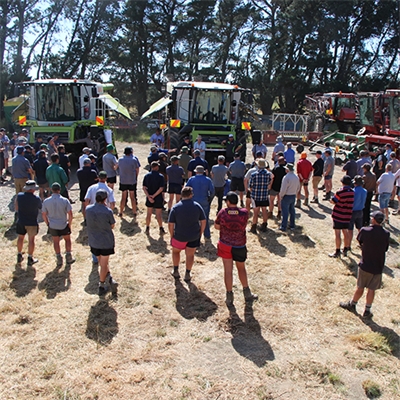
The combine harvester workshops were popular with arable farmers with many events oversubscribed.
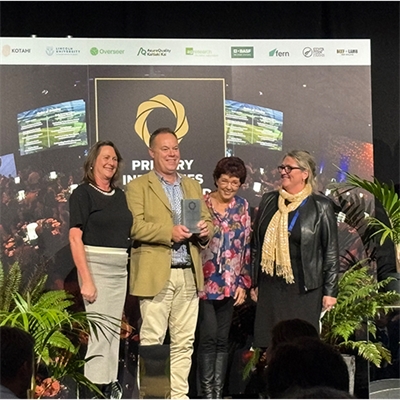
: FAR technology manager Chris Smith wins the PINZ Technology Innovation Award flanked by FAR communications manager Anna Heslop (left) and FAR chief executive Dame Alison Stewart (third from left).
Combine harvester workshops win innovation award
WORDS & IMAGES PROVIDED BY FAR
A Foundation for Arable Research initiative which took a closer look at the efficiency of a key piece of machinery for arable farmers – their combine harvesters – has been recognised at the Primary Industry NZ Awards.
Instigated by FAR’s technology manager Chris Smith, the combine workshops are saving growers valuable time and money during the critical harvest period as well as reducing potential yield and profit losses.
The combine workshops won the PINZ Technology Innovation Award.
While on the surface it might have appeared that arable farmers and their machinery dealers already knew everything about successfully running combine harvesters, FAR funded an independent team of experts from Australia and Canada to visit and take a fresh look. For the last two seasons these experts have carried out grower workshops prior to harvest and then returned to visit individual growers on their farms during harvest to check how adjustments are performing in the field.
Adjustments made to combines led to some instant harvesting gains and cost savings including reduced crop losses, faster harvesting speeds, lower diesel consumption, reduced horsepower and better harvest samples, Chris Smith says.
“One grower took 70 hours off his combining and another reduced fuel consumption by 30 per cent as well as producing a clean sample. Another farmer increased his harvesting capacity in barley from 20 hectares to 30ha a day.
“Some farms were already doing well and it was confirmation for them that they are running their combines efficiently.”
The combine specialists, led by Peter Broley of Primary Sales Australia, each concentrate on particular brands with Kassie van der Westhuizen advising on John Deere, Brett Asphar on Case and Claas and Murray Skayman, from Canada, on New Holland and Case. Each expert has 20-30 years of experience with the brand companies, dealerships and as independent consultants.
As combines cost $500 to $1000 an hour to run, including diesel, finance and depreciation, any increase in efficiency and throughput saves money.
The workshops show the importance of growers measuring and monitoring potential grain and seed losses and fine-tuning settings to mitigate these.
“Growers have only one opportunity to harvest a crop. Once it is gone out the back of the harvester it is too late,” Chris Smith says.
Another round of combine workshops is planned in the South Island this summer.
Related
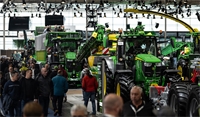
There are field days and then there’s Agritechnica. Are you ready to visit the world’s largest agr...
Read More
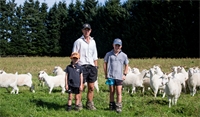
Although it’s early days, Mid Canterbury farmers Johnny and Jane Harrison’s decision to integrate ...
Read More
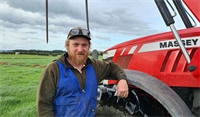
Dairy farmers weighing up a move into share farming next season should take time to know their numbe...
Read More
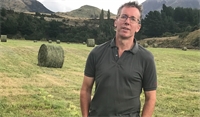
Otago high country farmer jack cocks has spent the past eleven years recovering from a life-threaten...
Read More
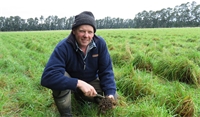
While humbled to travel the globe being the voice for New Zealand’s agricultural sector, as Hamish ...
Read More
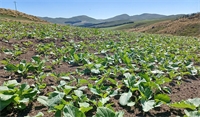
Corteva Agriscience leverages global research and local knowledge of forage brassica production in N...
Read More